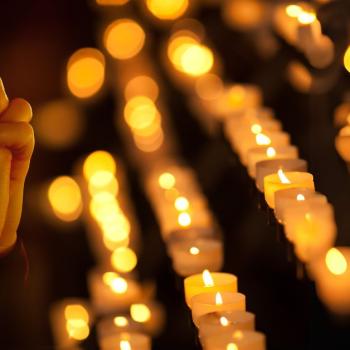
Out of all the sins of humanity, the Catholic Church has listed what we now call the seven deadly sins. They are also known as the seven capital or cardinal sins. We say that they are deadly because from these sins come numerous other sins that inflict our souls.
Sin does not stop. It grows and multiplies. Sin has the capacity to weaken our souls, lessening our ability to resist evil.
“Vices can be classified according to the virtues they oppose, or also be linked to the capital sins which Christian experience has distinguished, following St. John Cassian and St. Gregory the Great. They are called ‘capital’ because they engender other sins, other vices.” (Catechism of the Catholic Church, par. 1866)
Here are the seven deadly sins according to Catholic belief:
1. Pride
“It was pride that changed angels into devils; it is humility that makes men as angels.” – St. Augustine
Pride is often seen as the deadliest of all sins because it is pride alone that can keep us from accepting the infinite mercy of God.
With pride, we refuse to bow down to anyone, even God. We seek to assert ourselves only and we hold to the belief that we are better than anyone else.
“Pride goes before disaster,
and a haughty spirit before a fall.”
-Proverbs 16:18 (NABRE)
2. Avarice
“Avarice is an inordinate love of the goods of this world. Yes, my children, it is an ill-regulated love, a fatal love, which makes us forget the good God, prayer, the Sacraments, that we may love the goods of this world–gold and silver and lands.” – St. John Vianney
Another word for avarice is greed.
Greed makes us want more and more wealth and possessions. Through greed, we lose sight of our eternal home by focusing only on temporal goods we want to attain for ourselves.
“No one can serve two masters; for a slave will either hate the one and love the other, or be devoted to the one and despise the other. You cannot serve God and wealth.” – Matthew 6:24 (NRSVCE)
“Sin… is a failure in genuine love for God and neighbor caused by a perverse attachment to certain goods.” (CCC 1849)
3. Envy
“Envy is a capital sin. It refers to the sadness at the sight of another’s goods and the immoderate desire to acquire them for oneself, even unjustly.” (CCC 2539)
There is no happiness for one who always envies one’s neighbor. The person who has envy in one’s heart always looks at another’s blessings and is never satisfied with what one has.
“Soundness of heart is the life of the flesh: but envy is the rottenness of the bones.” – Proverbs 14:30 (DRA)
Envy is not being happy with the happiness of others. It is therefore against love because love desires the good of one’s neighbor.
“From envy are born hatred, detraction, calumny, joy caused by the misfortune of a neighbor, and displeasure caused by his prosperity.” – St. Augustine
4. Wrath
Wrath is also known as anger. It often starts with feelings of annoyance or frustration with other people. We feel angry when someone has offended us or the ones we care about.
But when this anger becomes uncontrolled, it becomes rage. It takes the form of vengeance. And when we seek revenge, we already desire to harm other people.
“Anger is a desire for revenge … The Lord says, ‘Everyone who is angry with his brother shall be liable to judgment.’” (CCC 2302)
“Refrain from anger; abandon wrath;
do not be provoked; it brings only harm.”
-Psalm 37:8 (NABRE)
5. Lust
“Lust is disordered desire for or inordinate enjoyment of sexual pleasure. Sexual pleasure is morally disordered when sought for itself, isolated from its procreative and unitive purposes.” (CCC 2351)
Like other sins, lust comes from a disordered desire. It seeks pleasure for pleasure’s sake, even at the expense of one’s dignity.
It warps our perspective in such a way that we can only see other people as objects of pleasure instead of human beings to be respected and loved.
“For all that is in the world, sensual lust, enticement for the eyes, and a pretentious life, is not from the Father but is from the world.” – 1 John 2:16 (NABRE)
6. Gluttony
“Gluttony denotes, not any desire of eating and drinking, but an inordinate desire… It is the inordinate desire of food that defiles a man spiritually.” – St. Thomas Aquinas, Summa Theologiae
When we succumb to gluttony, we consume more than we need. We may even consume to the point that our health is affected and we soon get sick.
Eating and drinking become the focus of our lives and we even forget to help our poor brothers and sisters.
It is not bad to enjoy eating and drinking and then to give praise to God for all of His blessings. What we should avoid is overindulgence. Excess consumption of material goods will never be good for our souls. It even has bad consequences for our physical body.
“Hear, my child, and be wise,
and direct your mind in the way.
Do not be among winebibbers,
or among gluttonous eaters of meat;
for the drunkard and the glutton will come to poverty,
and drowsiness will clothe them with rags.”
-Proverbs 23:19-21 (NRSVCE)
“The virtue of temperance disposes us to avoid every kind of excess: the abuse of food, alcohol, tobacco or medicine.” (CCC 2290)
7. Sloth
Saint Thomas Aquinas defined sloth simply as “sorrow about spiritual good”. It is therefore not mere laziness. But it is a refusal to persevere in good, especially for our spiritual growth.
“…acedia or spiritual sloth goes so far as to refuse the joy that comes from God and to be repelled by divine goodness.” (CCC 2094)
“The appetite of the sluggard craves but has nothing,
but the appetite of the diligent is amply satisfied.”
-Proverbs 13:4 (NABRE)
What do we desire? Do we desire virtue? Then we must learn to work for it through prayer and sacrifice.
If we strive for nothing, we gain nothing. We fall back and make a habit of failure.
“Sloth is a malady of the will which causes us to neglect our duties. Sloth may be either physical or spiritual. It is physical when it manifests itself in laziness, procrastination, idleness, indifference, and nonchalance. It is spiritual when it shows itself in an indifference to character betterment, a distaste for the spiritual, a hurried crowding of devotions, a lukewarmness, and failure to cultivate new virtue” – Fulton Sheen, Victory over Vice
Final Thoughts
A life of virtue is cultivated through good spiritual habits. This means being aware of the risks of a sinful and negligent life.
We must avoid these seven capital sins because they bring deadly consequences to our souls. Let us not be deceived by the initial pleasures and comforts we may derive through them. Through faith and perseverance, let us instead focus on our eternal goal so that we may one day reach the incomparable joys of heaven.
Jocelyn Soriano is the author of the book Defending My Catholic Faith.
“Always be ready to give an explanation to anyone who asks you for a reason for your hope.” – 1 Peter 3:15 (NABRE)
Get my books on other Digital Stores
You may also want to read “Is It a Sin Even if You Don’t Hurt Anyone?”















